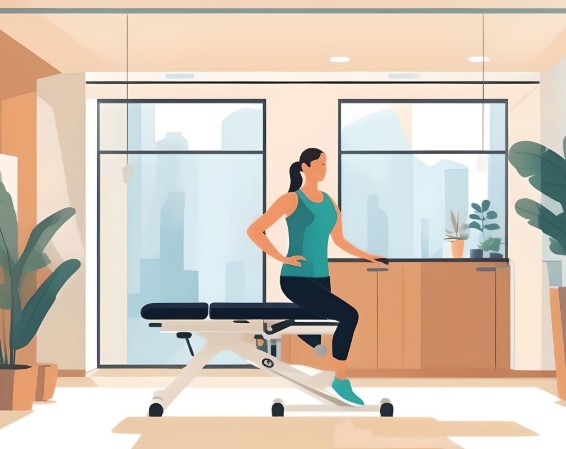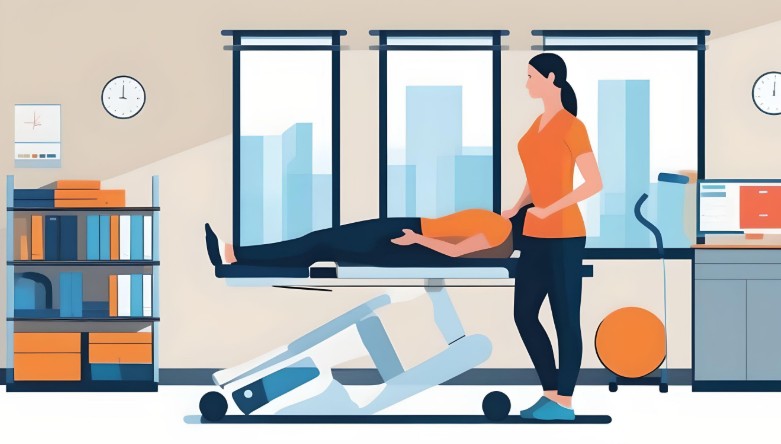The Psychological Impact of Personal Injuries and Recovery
The Psychological Impact of Personal Injuries and Recovery
Want to know the hardest part about recovering from a personal injury?
It’s not the broken bones. It’s not the medical bills. And it’s definitely not the physical pain.
Here’s the kicker:
The hardest part is what nobody talks about — the psychological toll that can completely derail your life.
Personal injuries don’t just damage your body. They can shatter your confidence, trigger anxiety, and leave you feeling like a completely different person. And the worst part?
Most people (including some doctors) completely overlook these psychological impacts.
What you’ll discover:
- The Hidden Mental Health Crisis After Injuries
- Why Your Brain Responds This Way To Trauma
- The Most Effective Recovery Strategies That Work
- When Professional Help Becomes Essential

The Hidden Mental Health Crisis After Injuries
Here’s something that might shock you…
The psychological impact.
Think about it for a second. One moment you’re living your normal life, and the next moment everything changes. Your routine gets destroyed. Your independence vanishes. Your future suddenly becomes uncertain.
That’s trauma.
And trauma doesn’t just go away because your bones heal.
Personal injury cases involve more than just medical expenses and lost wages. The emotional distress can be just as debilitating as any physical wound. That’s why experienced Florida personal injury lawyers understand the importance of addressing both the physical and psychological aspects of your case when fighting for fair compensation.
Seeing a no fault doctor as soon as possible after an accident can help document injuries, both physical and psychological, ensuring your medical records reflect your experience’s full scope. These records often become critical evidence for claims involving trauma-related conditions like PTSD or anxiety.
The truth is that psychological injuries are finally getting the recognition they deserve in legal proceedings. Courts are awarding real compensation for the emotional toll accidents take on victims.
Cyclists who suffered through such hardships often get compensated for PTSD thanks to their bicycle crash attorney who understands the intricate connection between physical trauma and long-term mental health struggles. With careful documentation and expert testimony, these legal professionals help ensure that victims receive fair recognition for the emotional impact of their experiences.
Why Your Brain Responds This Way To Trauma
Your brain isn’t designed to handle sudden, life-threatening events.
When you experience a serious injury, your brain goes into survival mode. It floods your system with stress hormones and creates hypervigilant responses to keep you “safe.”
The problem?
Your brain doesn’t know when to turn this system off.
Here’s what happens inside your head after a traumatic injury:
- Fight-or-flight mode gets stuck “on” — You feel constantly on edge
- Memory processing goes haywire — You replay the accident over and over
- Fear responses become overactive — Normal activities feel dangerous
This isn’t a weakness. This is your brain trying to protect you in the only way it knows how.
The Most Common Psychological Impacts
Let me break down what most personal injury victims actually experience…
Post-Traumatic Stress Disorder (PTSD)
PTSD isn’t just for war veterans.
About 9 million Americans are affected by PTSD from all types of traumatic events — including personal injuries.
The symptoms include:
- Flashbacks that make you relive the accident
- Nightmares that disrupt your sleep
- Avoidance of places or activities that remind you of the trauma
- Hypervigilance that keeps you constantly on edge
But here’s something most people don’t realize…
PTSD symptoms can show up weeks or even months after your injury. Just because you felt “fine” initially doesn’t mean you’re in the clear.
Depression and Anxiety
This is where things get really tough.
People with PTSD are 3 to 5 times more likely to develop depression. The combination creates a vicious cycle that can trap you in a downward spiral.
Depression after a personal injury often looks like:
- Loss of interest in activities you used to enjoy
- Feelings of hopelessness about your recovery
- Overwhelming sadness or emptiness
Anxiety manifests as:
- Constant worry about your health or safety
- Panic attacks in situations that remind you of the accident
- Fear of leaving your home or being alone
Chronic Pain and Mental Health
Here’s something that blows most people’s minds…
Chronic pain isn’t just physical. It rewires your brain and creates psychological changes that can persist long after tissues heal.
The persistent nature of pain can lead to:
- Personality changes that affect your relationships
- Isolation because others don’t understand your experience
- Cognitive fog that makes thinking clearly difficult
If you’re suffering from chronic pain, working with pain management doctors who specialize in holistic approaches can make a difference. Find one who can provide effective, minimally invasive, and personalized treatments to help address the physical and emotional aspects of recovery.
The Most Effective Recovery Strategies That Work
Recovery isn’t just about letting time pass and hoping things get better.
You need a plan.
Here are the strategies that actually work for overcoming the psychological impact of personal injuries:
Cognitive Behavioral Therapy (CBT)
CBT is like rewiring your brain’s response patterns.
It helps you:
- Identify negative thought patterns that keep you stuck
- Develop healthier coping mechanisms
- Challenge catastrophic thinking about your future
The best part? CBT has decades of research proving its effectiveness for trauma recovery.

Eye Movement Desensitization and Reprocessing (EMDR)
EMDR might sound weird, but it’s incredibly powerful.
This therapy helps your brain process traumatic memories so they stop hijacking your daily life. Instead of constantly reliving the trauma, EMDR helps your brain file the memory away properly.
Mindfulness and Meditation
Mindfulness isn’t just sitting cross-legged humming. It’s a practical tool for managing the hypervigilance and anxiety that come with trauma.
Mindfulness techniques help you:
- Stay grounded in the present moment
- Reduce the constant replay of traumatic events
- Manage pain more effectively
Building a Support Network
Isolation is trauma’s best friend. The more isolated you become, the stronger the psychological impact grows.
Your support network should include:
- Family and friends who understand what you’re going through
- Support groups with others who’ve experienced similar traumas
- Mental health professionals who can guide your recovery
When Professional Help Becomes Essential
Sometimes you can’t “tough it out” alone. Recognizing when you need professional help isn’t failure — it’s intelligence.
Seek professional help if you experience:
- Symptoms that persist longer than a month
- Inability to function in daily activities
- Thoughts of self-harm or suicide
- Substance use to cope with emotions
Remember this: Up to 40% of people with PTSD recover within a year with proper treatment.
Recovery is possible.
The Legal Side of Psychological Injuries
Courts increasingly recognize psychological injuries as legitimate damages in personal injury cases.
This means you can seek compensation for:
- Pain and suffering from emotional distress
- Therapy costs for mental health treatment
- Lost enjoyment of life due to psychological impacts
- Medication expenses for mental health conditions
But proving psychological damages requires documentation. That’s why seeking professional help isn’t just about recovery — it’s about protecting your legal rights.
Overcoming an Injury: The Path Forward
Recovery isn’t linear. Some days will be better than others. The key is understanding that psychological healing often takes longer than physical healing.
Your recovery roadmap should include:
- Immediate crisis management — Address safety and stability first
- Professional assessment — Get a proper diagnosis and treatment planning
- Consistent therapy — Stick with evidence-based treatments
- Lifestyle modifications — Exercise, nutrition, and sleep optimization
Building Resilience for the Future
The goal is to build resilience that makes you stronger than before.
Resilience building includes:
- Learning new coping skills that serve you for life
- Developing a growth mindset about challenges
- Creating meaning from your experience
Practical Steps You Can Take Today
Stop waiting for motivation to strike.
Start with these concrete actions:
Today:
- Call a mental health professional to schedule a consultation
- Reach out to one person in your support network
This Week:
- Research support groups in your area
- Start a daily mindfulness practice (even 5 minutes counts)
This Month:
- Establish consistent therapy appointments
- Join a support group or online community
Moving Forward with Hope
The psychological impact of personal injuries is real, significant, and treatable.
Recovery takes time, effort, and often professional help. But with the right strategies and support, you can not only heal from the psychological trauma — you can build a life that’s more resilient and meaningful than before.
The Role of Mindset
The most effective recovery strategies combine professional therapy, medication when appropriate, mindfulness practices, and strong support networks. Don’t wait for symptoms to go away on their own.
Professional help isn’t a sign of weakness — it’s a sign of wisdom. With proper treatment and support, psychological recovery is not only possible but probable.
Your injury doesn’t define you. Your response to it does.

